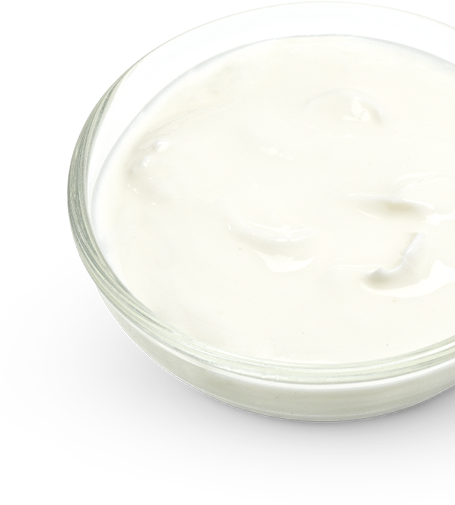-WONDERFOOD-
YOGURT
Packed with gut-friendly probiotics as well as protein, calcium, and phosphorus, yogurt’s longevity benefits lie in its protective powers. Studies have shown that yogurt can help counter many of the health problems associated with getting older, such as high blood pressure, osteoporosis, and unwanted weight gain.
WHICH YOGURTS?
All yogurts are a great source of protein and calcium. Here are the varied benefits offered by the most popular kinds of plain yogurts.

Regular
- is made from whole milk and usually contains the most nutrients
- has good levels of calcium, vital for strong bones and helping prevent osteoporosis.

Fat-free/low-fat
- are the lowest in calories, fat, and saturated fat so are the best choice for weight management and heart health.

Greek
- has fewer natural sugars, but is much higher in fat (unless a fat-free version)
- is a good source of vitamin A, an immune-boosting antioxidant.
HOW MUCH?
Studies suggest one small pot (three to four tablespoons) a day offers the greatest health benefits.

BEST BOUGHT
Choose probiotic, bio, or live yogurts, which have friendly bacteria added to them. Always select unsweetened, plain, or natural varieties of yogurt.

HOW TO STORE
Keep refrigerated or freeze for a homemade frozen yogurt.
RAW OR COOKED?
Eat raw as cooking kills the probiotics.

Blood pressure lowering
In the late 1990s, a landmark study found that adding low-fat dairy to a diet rich in fruit and vegetables lowered blood pressure more than fruit and vegetables alone. Further research has backed up this link, and shown that yogurt in particular has impressive results.

![]() 20%
20%
drop in risk of developing high blood pressure when yogurt is eaten five times a week rather than once a month.
Diet helpers
Numerous studies show that people who eat yogurt gain less weight over time and are more likely to have a lower body mass index, a smaller waist, and less body fat. The newest research suggests that “friendly” probiotic bacteria in yogurt “crowd out” bad bacteria that may affect satiety or the absorption of nutrients, meaning that we limit our calorie intake.
Brilliant bone strengthener
From our mid-30s we start to lose bone mass, with an increased loss around the time of the menopause for women. Calcium is vital for strong bones, and yogurt is rich in calcium, along with protein and phosphorus. Several studies have linked good intakes of yogurt to stronger bones. This is important as, according to the International Osteoporosis Foundation, osteoporosis affects around 200 million women worldwide.

Gut friendly
Fermented foods such as live or bio yogurt are packed with probiotic bacteria, which help to boost friendly bacteria in the gut. This in turn has been linked to many health benefits, including improving digestive related problems such as diarrhoea, irritable bowel syndrome (IBS), and lactose intolerance, as well as boosting immunity and protecting against some cancers.
Diabetes protection
Many studies have shown how yogurt helps to protect against type 2 diabetes. In one of the largest studies, adults who ate 500g (1lb 2oz) of yogurt a week were 28 per cent less likely to develop the disease over the study period of 11 years.

![]() 22%
22%
In a review of 17 studies, eating 200g (7oz) of yogurt each day was linked to a 22 per cent reduction in the risk of diabetes.